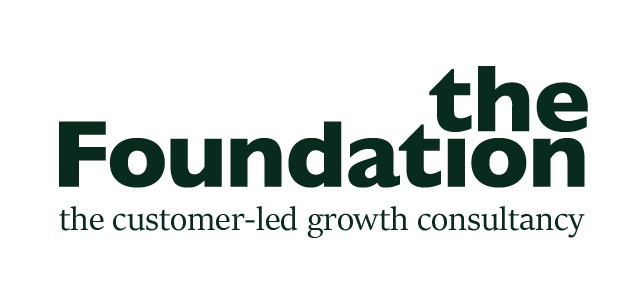What big businesses can learn from startups: Fussy – a customer-led success story
Our Analyst Jack Elston discusses what makes successful startups, such as Fussy, so customer-led and what big businesses can learn from them.
Here at The Foundation, we are repeatedly tasked with getting organisations to understand what customers truly value and to then trailblaze on their behalf. For many, this means rethinking their business to put customers at the centre with a true understanding of what matters to them.
Usually, the bigger the business, the harder the challenge. This is because as organisations get bigger, not only do they have increasing pressure from stakeholders and financial targets, but the leaders of the business also become increasingly separated from the customers they serve. On the other end, you have successful startups who are often very customer-led. This is no surprise given they are built by founders trying to solve a problem for customers, so they are instinctively rooted in their needs.
Recently, I was introduced to a startup called Fussy, a sustainable personal care brand on a mission to banish single-use plastic from people’s bathrooms. Their first product, a refillable deodorant, has been a huge success, with the company receiving backing on Dragon’s Den. I was so impressed that I (*non-impulsively) invested in their crowdfunding campaign. Since then, amongst other successes, they’ve just signed their first retail partnership with Tesco.
But what made them so appealing to a big-timer like me, and the small-time investors on Dragons Den?
This got me thinking about the nature of successful startups, and how they are often very connected to their customers. So, what can struggling big businesses learn from great examples of customer-led success in the startup world, such as Fussy?
Fussy’s first product was named ‘The UK’s Best Refillable Deodorant’ by The Independent as well as ‘The Best Eco-Deodorant’ by Glamour. It is the UK’s highest-rated refillable natural deodorant.
1 - They focus on solving a specific problem for a specific customer.
Many successful startups are founded by entrepreneurs who are passionate about solving a specific problem or addressing a particular need for customers. To do this successfully, they are familiar with the pain points (often as a consumer themselves) and have a relentless desire to create solutions that meet those needs. By doing this, customers become the centre of everything they do.
Fussy does this brilliantly. They have identified a gap in sustainable deodorant which is effective, convenient and as good for your skin as it is for the environment. They also know exactly who their customer is, the conscious consumer (primarily Gen Z’s) who want to purchase more socially responsible products. Perhaps more impressively, they also know who their customer isn’t and therefore aren't wasting time and money designing something for someone who doesn't want it.
2 - They are adaptable and responsive.
Given their relentless pursuit to solve a specific customer problem, successful startups are not afraid to pivot quickly when things aren’t working. Being agile and responsive is important in adapting a product or service to meet customers' needs, particularly in the face of seismic market changes (*none needs reminding of COVID). This means they can change direction when something is clearly not landing, or they can do iterative development of a new product or service, feature-by-feature, through customer feedback, market research and a real understanding of customer behaviour.
Fussy are adaptable in their approach. They have experimented with both ingredients and design of their signature product, making it as easy as possible for customers to refill and reuse them. In terms of responsiveness, apart from identifying a clear market opportunity, they as a brand are incredibly responsive. They have also owned their mistakes. For example, they got into a bit of hot water over some adverts which compared their products to some Unilever products. Rather than shy away from this mistake, they delivered an olive tree to the Unilever headquarters with an apology letter and a note reading “our bad”. They were responsive, took ownership of the mistake and subsequently gained respect for it, most notably from the CEO of Unilever, Alan Hope, who replied by telling them “don’t sweat it”.
We come in peace - Fussy extended the olive branch (or tree).
3 - They focus on building strong relationships with their customers.
Given they are often focusing on a niche market or specific customer segment, startups often have a much closer relationship with their customers. They invest in building these relationships and engage regularly with customers to gather feedback and insights. Importantly, this isn't just a "going-through-the-motions" exercise, they truly understand the importance of doing it. This is because it allows customers to help shape product development, designing something people both want and need. It also creates a sense of community, which is important for both brand awareness and growth.
Fussy has a clear emphasis on building community. They have a strong social media following, a weekly newsletter and they form partnerships which are valuable to their customers. For example, during Black Friday week they launched a brand partnership scheme (the “green card”) to allow customers to get discounts on other sustainably-minded brands. Their customers also help to shape their future direction, such as through social media polls on what products they want to see next and which retailers they should partner with (e.g. Tesco). This has all contributed to their organic acquisition of customers which, while often being a steadier form of growth for a business, provides a better chance of long-term success.
In conclusion, successful startups, such as Fussy, are businesses which are customer-led as determined by their very nature. They reap the significant benefits of focusing on solving a specific problem for a specific customer, being adaptable and responsive, and building strong relationships with their customers. This allows them to better meet their needs whilst providing a sustainable model of organic long-term growth.
What’s more, these are all lessons that big businesses can learn from, especially as they seek to maintain customer focus and prioritise customer needs in the face of growth and competing priorities. That's because focus, adaptability and forming strong relationships with customers are just as important in maintaining success as it is in creating it.


